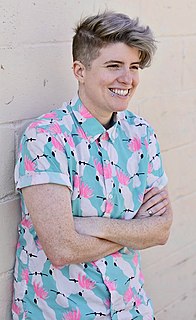A Quote by John Battelle
When you use Facebook, you're always logged in, and your identity and relationships - to others, to content, to apps and services - are assets Facebook can use to customize your experience (oh, and your ads).
Related Quotes
I don't think unfriending your old crush on Facebook will do much other than remove him from your Facebook feed. Don't beat yourself up over what you dream about; there are a lot worse things that could slip across the transom of your unconscious mind than an old high school crush who was always nice to you.
If you'd come to me in 2012, when the last presidential election was raging and we were cooking up ever more complicated ways to monetize Facebook data, and told me that Russian agents in the Kremlin's employ would be buying Facebook ads to subvert American democracy, I'd have asked where your tin-foil hat was.
































